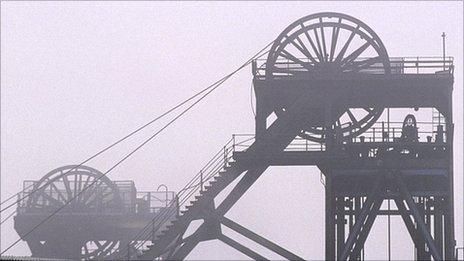PM's coal mining 'joke' no laughing matter, say MPs
- Published
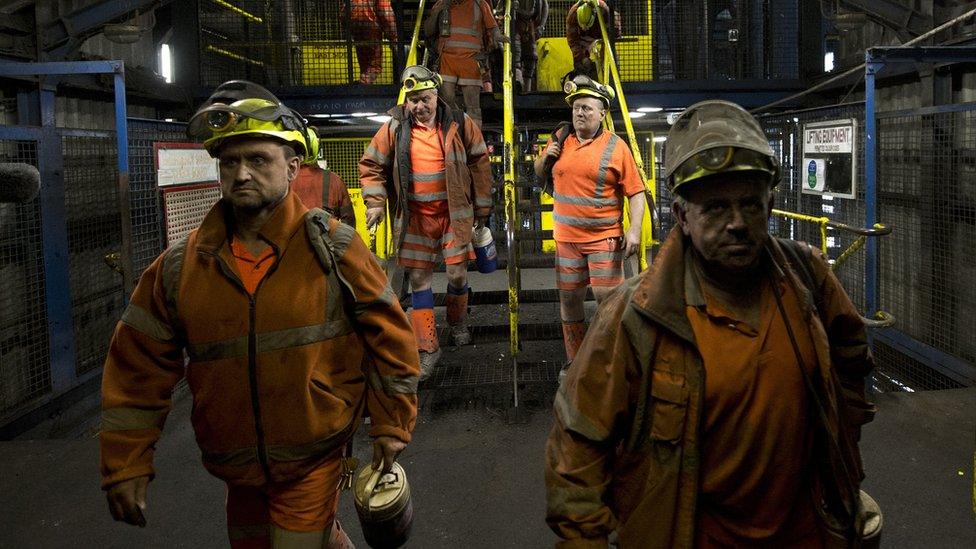
Britain's last deep coal mine, Kellingley Colliery, closed in 2015
An MP and former miner has said he is "appalled" by the prime minister's "mining joke" but not surprised.
Wansbeck MP Ian Lavery said Boris Johnson should not "add insult to injury" by apologising for his remarks.
The former president of the National Union of Mineworkers said: "These comments were not a joke, this is what he truly thinks of those he destroyed."
Mr Johnson said Margaret Thatcher's closure of mines in the 1980s had helped the UK fight climate change.
On Thursday, Mr Johnson told reporters: "Thanks to Margaret Thatcher, who closed so many coal mines across the country, we had a big early start and we're now moving rapidly away from coal altogether."
He is reported to have laughed and added: "I thought that would get you going."
Since then, Number 10 has said Mr Johnson recognises the impact and pain the closure of mines caused but declined to apologise for his comments.
Labour MP Mr Lavery, who worked at Lynemouth and Ellington collieries in the North East, said: "This was not a gaffe and I don't think he should apologise and add insult to injury."
He said the PM "joined the Tory party to assist in the destruction of our mining jobs and he now laughs and about the pain and suffering the Tories viciously meted out on hard working people and their families".
"It's an absolute disgrace, but this is what he absolutely thinks about the people he destroyed.

Ian Lavery said the PM's comments "were not a joke, this is what he truly thinks of those he destroyed."
Stephanie Peacock, Labour MP for Barnsley East, called Mr Johnson's comments a "complete re-writing of history".
She said: "I think it's a disgrace, quite frankly. The people I represent don't find the fact that the Conservative government closed the pits a laughing matter.
"The pit closures are still felt across Barnsley and up and down the country, these comments show what the prime minister actually thinks of communities like Barnsley."
The Labour MP said Mr Johnson was "laughing about the destruction of working-class communities and the fact that thousands of men lost their jobs".
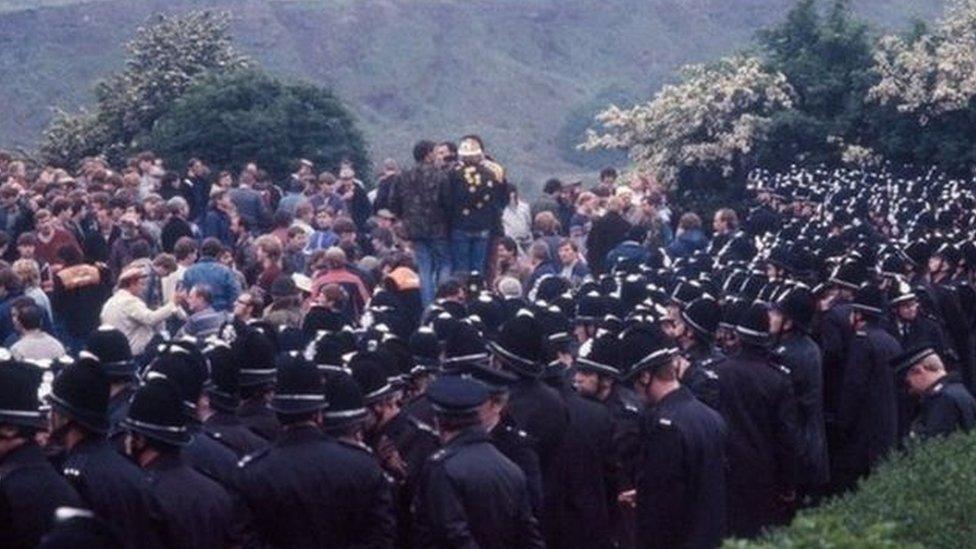
The so-called Battle of Orgreave in South Yorkshire in 1984 was a flashpoint of the miners' strike
Former miner Kevin Horne, who was arrested during the nationwide miners' strike in 1984, said: "The pits weren't closed because of the environment at all, it was a political decision after the Ted Heath government was brought down by the miners.
"The people who live on the estates and pit villages won't be very pleased because there's no work any more for their children and grandchildren," he told the Today programme.
Nick Fletcher, a so-called "red wall Tory" MP, said the pit closures were "still a source of deep upset" in his Don Valley constituency in South Yorkshire.
"While I agree with the prime minister that moving away from fossil fuels is essential in the fight against climate change, I believe his recent choice of words was unfortunate.
"Having been a teenager in Doncaster during the 1980s, I know that the closure of the mines was a source of deep upset and resentment for communities across South Yorkshire.
"The economic restructuring that took place during that time was challenging for many people. While such restructuring was necessary, it is vitally important that people across the country remember it did not come without a cost for many communities in this new 'Blue Wall'. "
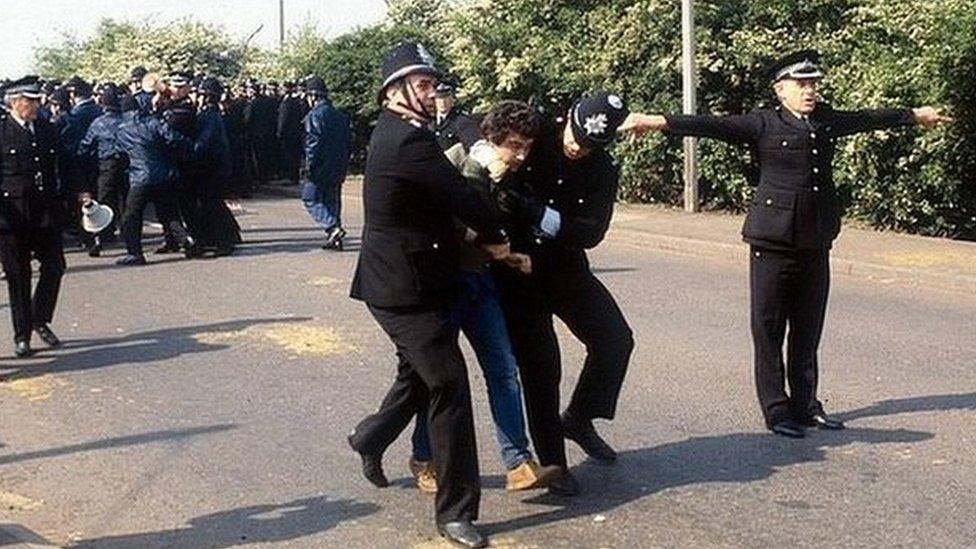
The closure of coal mines in the 1980s brought communities into conflict with police
The UK's former coalfields have a combined population of 5.7m people located mainly in northern England, the Midlands, south Wales and central Scotland.
In 2019 a report by the Coalfields Regeneration Trust - which works with former mining communities - found many had still not recovered a generation on from pit closures.
Issues including unemployment, ill health and social disadvantage still affect areas "scarred by the legacy of the past", it concluded.
Steve Fothergill, who led the Sheffield Hallam study, external, said more action and funding was needed for "years to come".
At its height, coal mining industry employed more than a million people in the UK but the last deep mine closed in 2015.
It found while unemployment is lower than it used to be, these areas continue to have large numbers of people out of work and on benefits.
Related topics
- Published6 August 2021
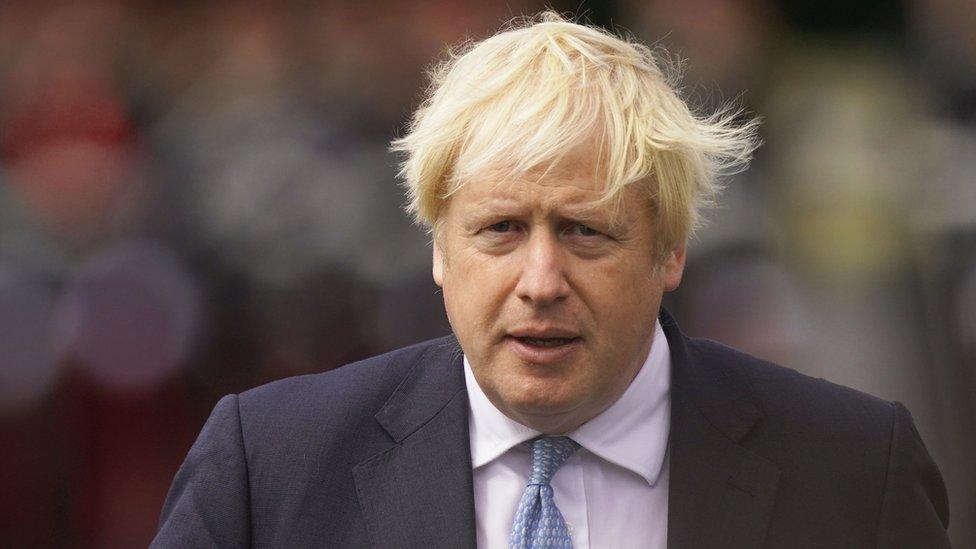
- Published16 October 2019

- Published20 October 2020
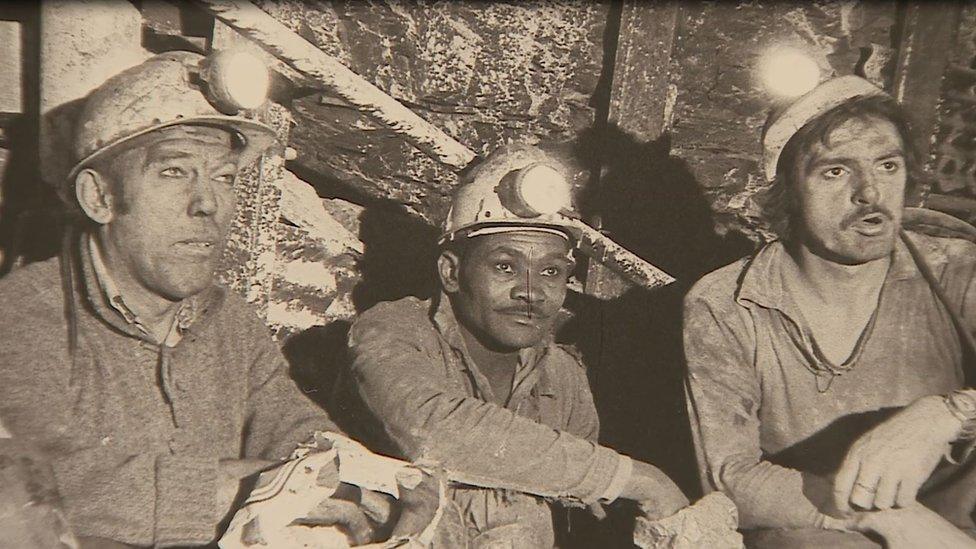
- Published14 November 2013
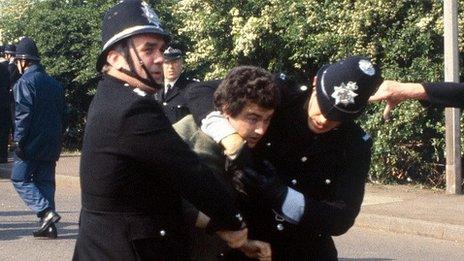
- Published21 July 2011
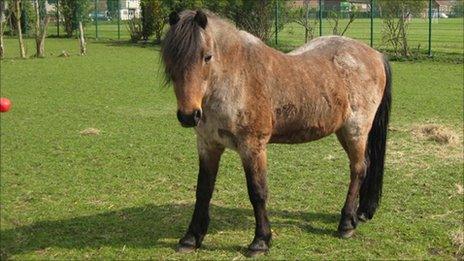
- Published20 October 2017
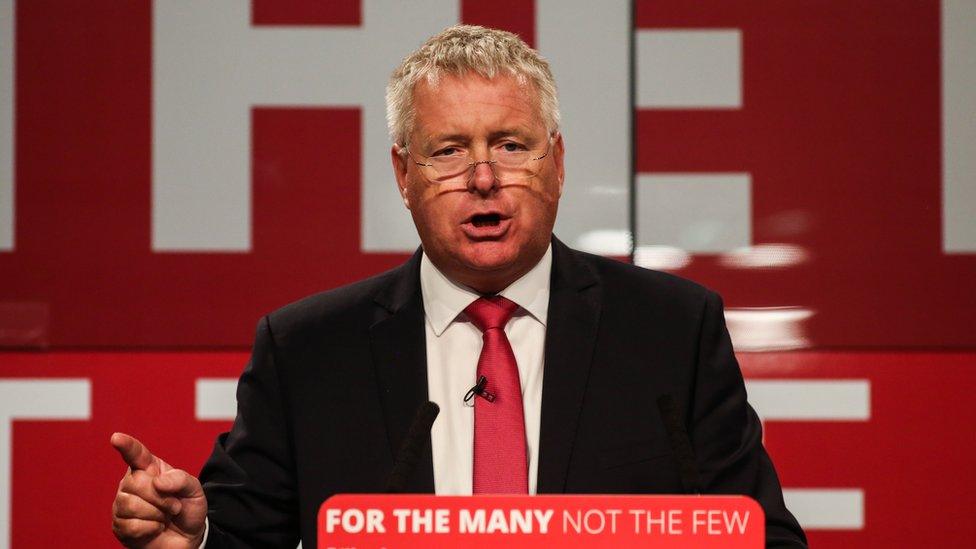
- Published22 March 2017

- Published6 August 2021
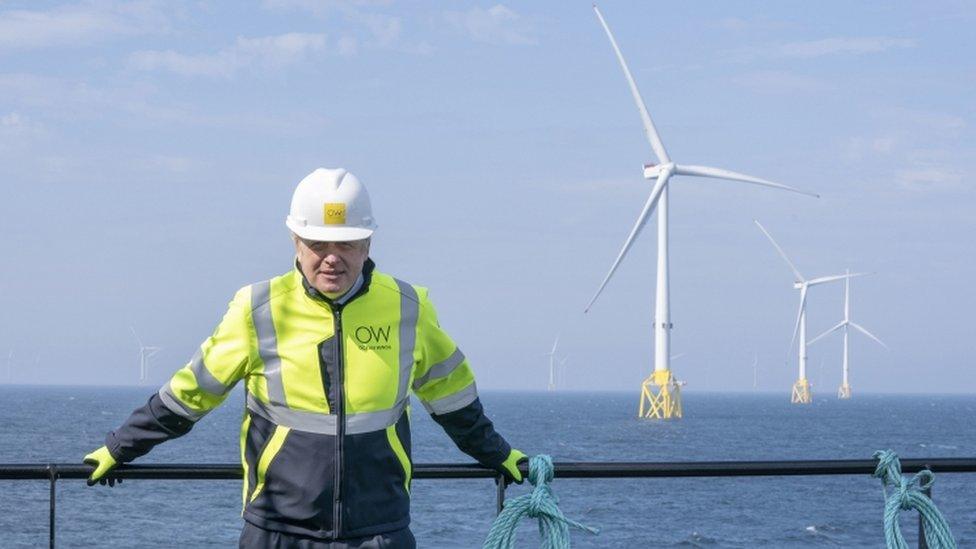
- Published16 May 2011
